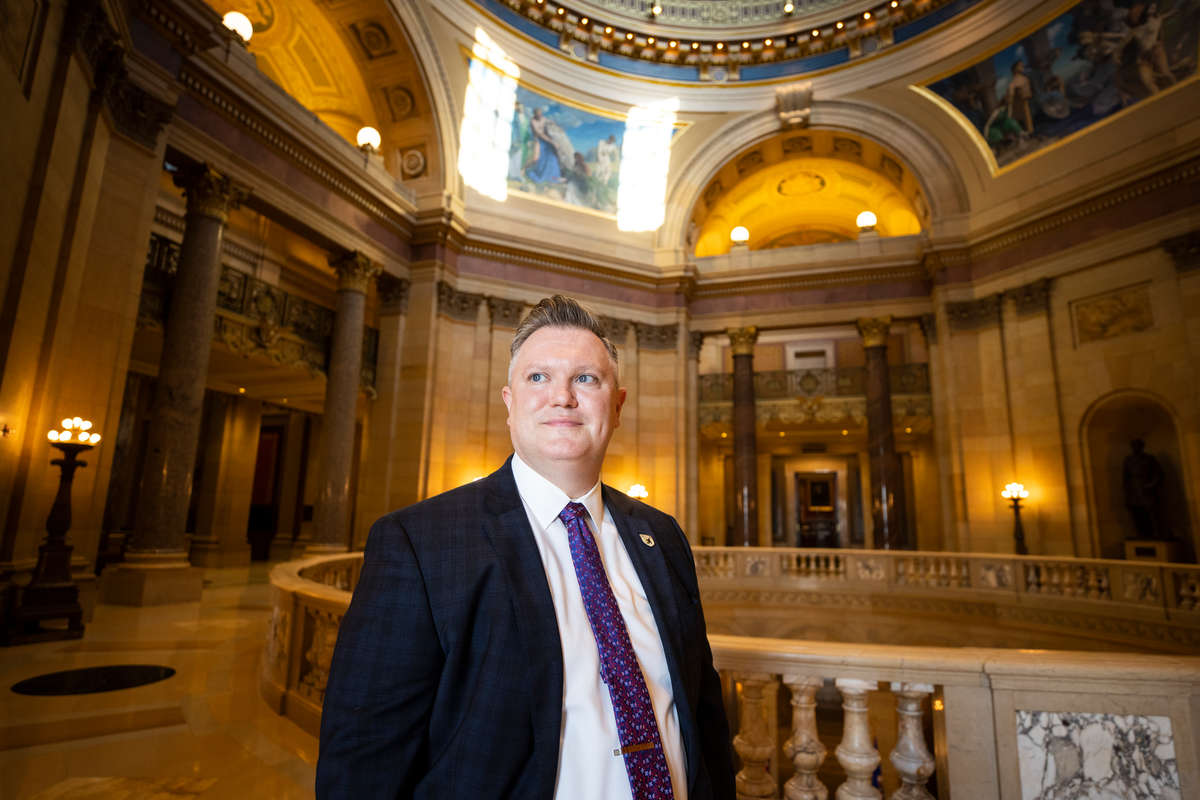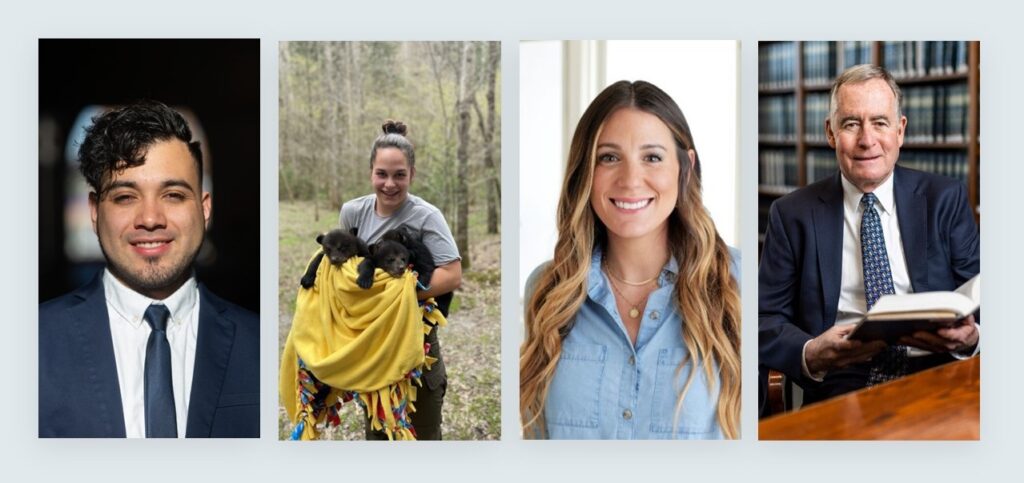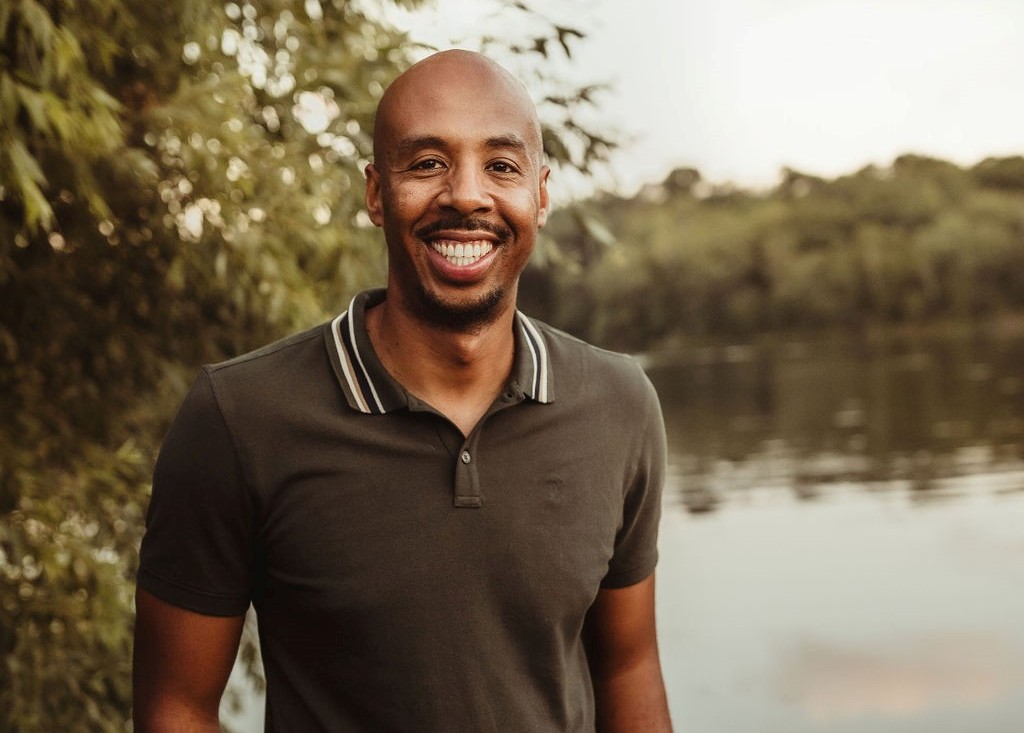When Ryan Else’s active military duty ended in 2006 after nearly a decade of service with the Army National Guard, he contemplated his next steps. The veteran toyed with the idea of working in law enforcement or intelligence work. Ultimately, he was drawn to the law.
At St. Thomas School of Law, Else ’11 J.D. discovered a passion for defending veterans. That passion led to the Veterans Defense Project (VDP), which he co-founded in 2017 with fellow criminal defense attorney and veteran Brock Hunter. The VDP’s mission is “restoring veterans involved in the criminal justice system to the communities they served.”
In the summer of 2021, the VDP was successful in the passage of the landmark Veterans Restorative Justice Act (VRJA).
Landmark legislation
The Veterans Restorative Justice Act allows military veterans who are convicted of criminal offenses to opt for alternative treatment rather than jail time if the presiding judge finds that their crimes were committed due to a service-related condition.
VRJA is monumental because it provides uniformity to Minnesota’s existing veterans treatment courts, each of which currently uses different models. It also provides a structure for jurisdictions to follow in individual veteran cases if they do not already have a veterans treatment court.
“This [VRJA] will basically create that system in every court in Minnesota, whether they have a veterans court or not,” Hunter said. “Every judge will have this template to follow if they've got a veteran in front of them who has committed a crime.”
The passing of the VRJA is the culmination of years of advocacy work by many people, including prosecutors, judges, defense attorneys, social workers, and the state and federal departments of Veterans Affairs.
Hank Shea, law professor and fellow of the Holloran Center and the Initiative on Restorative Justice and Healing, is one of those advocates. He even sits on the VDP's board of directors. He said the new law has potential to become a model for many other states and, ideally, the nation. He added that Else is an “unsung hero” for his integral role in the bill’s passage.
Else modestly downplays his contribution. “What I brought to the team is I get a thing in my head and once I've determined this is the way it should be, I don't negotiate much,” he said. “I really dug my heels in on some issues that I felt were important to the bill. That was my biggest contribution – being hardheaded.”
Deployed to Kosovo twice during his service, Else empathizes with many of the veterans eligible for the restorative justice program because he’s dealt with his own service-related PTSD.
"If you give people no option but to live the life of a felon, they're going to use their skills in ways we don't want,” Else said. “The VRJA gives them an opportunity to turn their life around.”
A meaningful partnership
Else was a first-year law student when he met Hunter, a highly accomplished criminal defense attorney well known for providing legal assistance to veterans who have post-traumatic stress disorder, traumatic brain injury, substance abuse or other service-related disorders. Hunter was giving a presentation called Echoes of War about combat trauma and how it can lead to criminal behavior. What he said resonated with Else, who had a hard time reintegrating himself into society after service.
“Right after I heard him speak for the first time, I was so impacted by Brock’s words that I emailed him and said, ‘I'll volunteer to help you with anything related to veteran's advocacy,’” Else recalled.
Soon after, Else was clerking for Hunter and later joined his practice. They would go on to co-author the treatise, “The Attorney’s Guide to Defending Veterans in Criminal Court.” Else is proud of the work they've done to help veterans.
“I remember bonding with some of our clients early on,” he said. “There’s one veteran in particular I defended who has really turned his life around. His wife came back to us and said, ‘Thank you for giving me my husband back.’”
A strong legal foundation
Else has had many accomplishments in his career. Over his decade of practice, Else has become a top criminal defense attorney in Minnesota and has been selected as a Rising Star by Super Lawyers each year since 2017; he's active in a variety of professional organizations, including the Minnesota Association of Criminal Defense Lawyers and the National Association of Criminal Defense Lawyers; and he's a consultant and adviser to Veterans' Voices, a program of the Minnesota Humanities Center.
Through it all, Else has not forgotten his law school roots – he has been a devoted mentor to law students through the St. Thomas Law Mentorship Externship Program ever since he graduated. Fortunate enough to have strong mentors throughout his career, Else said it’s important to him to do the same for those just starting in their law careers.
“I find it very grounding to maintain close contact with those at the beginning of their journey as it keeps me grateful for the success I've earned,” he said.
Shea, who said he is not surprised by Else’s success, feels gratitude and pride when he thinks about how Else and the work he’s done reflects the School of Law.
“I see the things we look for and try to foster in our students – dedication, integrity, honor --that’s what Ryan Else is all about,” he said.







